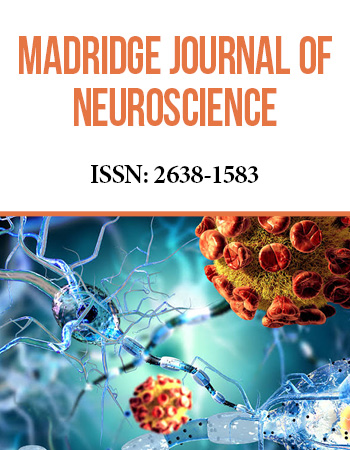International Neurology Conference
December 3-4, 2018 Valencia, Spain
mTOR Mediates Neuronal Death following Transient Global Cerebral Ischemia in the Striatum of Chronic High-Fat Diet-Induced Obese Gerbils
Kangwon National University, South Korea
Purpose: Recent studies have shown that obesity and its related metabolic dysfunction exacerbates outcomes of ischemic brain injuries in some brain areas, such as the hippocampus and cerebral cortex when subjected to transient global cerebral ischemia (tGCI). However, the impact of obesity in the striatum after tGCI has not yet been addressed. The objective of this study was to investigate effects of obesity on tGCI-induced neuronal damage and inflammation in the striatum and to examine the role of mTOR which is involved in the pathogenesis of metabolic and neurological diseases.
Methods: Gerbils were fed with a normal diet (ND) or high-fat diet (HFD) for 12 weeks and then subjected to 5 min of tGCI. HFD-fed gerbils showed significant increase in body weight, blood glucose level, serum triglycerides, total cholesterol and low-density lipoprotein cholesterol without affecting food intake.
Results: In HFD-fed gerbils, neuronal loss occurred in the dorsolateral striatum 2 days after tGCI and increased neuronal loss was observed 5 days after tGCI; however, no neuronal loss was observed in ND-fed gerbils after tGCI, as a assessed by neuronal nuclear antigen immunohistochemistry and Fluoro-Jade B histofluorescence staining. The HFD-fed gerbils also showed severe activated microglia and further increased immunoreactivities and protein levels of tumor necrosis factor-alpha, interukin-1beta, mammalian target of rapamycin (mTOR) and phosphorylated-mTOR in the striatum during pre- and post-ischemic conditions compared with the ND-fed gerbils. In addition, we found that treatment with rapamycin, a mTOR inhibitor, in the HFD-fed gerbils significantly attenuated HFD-induced striatal neuronal death without changing physiological parameters.
Conclusion: These findings reveal that chronic HFD-induced obesity results in severe neuroinflammation and significant increase of mTOR activation, which could contribute to neuronal death in the stratum following tGCI. Especially, abnormal mTOR activation might play a key role in mediating the obesity-induced severe ischemic brain damage.
Keywords: Obesity, transient global cerebral ischemia, neuroinflammation, mTOR, rapamycin, neuronal death


